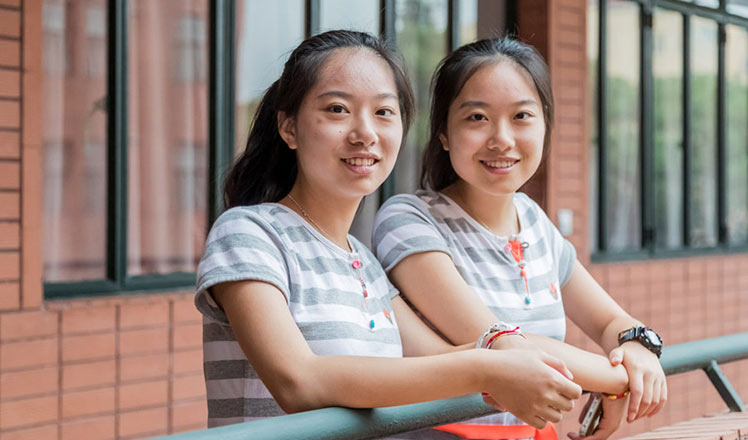Progress in judicial protection of rights
Updated: 2016-09-13 07:36
(China Daily)
|
||||||||
III. Enhance Judicial Protection of Human Rights
China punishes crimes by law, tries civil and administrative cases fairly, and strengthens the execution of effective judgments. It endeavors to improve institutions of community correction, state compensation and legal aid, and diligently safeguard citizens' right of life, property right, right of livelihood and other legitimate rights and interests.
Handle all kinds of criminal cases by law to protect people's right of life and property right. The state focuses on punishing violent terrorist crimes, serious crimes of violence, gangland crimes, crimes involving guns and explosives, crimes endangering food and medicine safety, crimes related to drug production and trafficking, and some other crimes. Public security organs have launched a series of special actions to fight against violent terrorist activities, combat organized criminal gangs, crack down on illegal gathering and trading of citizens' information, and combat telecommunication fraud and the use of pseudo base stations.
Together with the Ministry of Public Security and the China Food and Drug Administration, the Supreme People's Procuratorate has formulated working methods connecting administrative law enforcement on food and medicine crimes with criminal justice. In 2015, procuratorial organs at all levels recommended to food and drug regulatory authorities to bring 1,646 suspected criminal cases to lawsuit, and supervised and urged public security organs to file 877 cases. The mechanism enabling procuratorial organs to synchronously engage in investigating and handling industrial accidents has been improved. In 2015 procuratorial organs prosecuted 2,199 people for being liable for serious accidents, and investigated and dealt with 823 involved in these accidents for work-related crimes. After the Tianjin Port fire and explosion incident on August 12, 2015, procuratorial organs quickly launched an investigation, and then placed on file 25 cases of criminals suspected of dereliction of duty, abuse of power, and bribery. From 2012 to 2015, courts at all levels concluded 4,062,600 criminal cases of first instance. Related courts tried, according to the law, the case of the Kunming terrorist attack on March 1, 2014, that of Beijing terrorist attack on October 28, 2013, and other cases of violent terrorist crimes. Courts concluded 2,070 cases of gangland crimes, 1,050,500 cases of murder, robbery, kidnapping, rape and other crimes, and 417,300 cases of drug-related crimes.
Punish by law crimes of corruption and work-related crimes to create a favorable political and legal environment for the protection of human rights. In 2015, procuratorial organs at all levels placed on file and investigated 40,834 cases of work-related crimes involving 54,249 people. Specifically, they investigated and dealt with 4,490 cases of embezzlement, bribery, and defalcation of more than one million yuan each, a year-on-year increase of 22.5 percent; 13,210 people for taking bribes and 8,217 for offering bribes; 13,040 civil servants for dereliction and malfeasance; and 20,538 people for work related crimes in land requisition and demolition, social security, education, healthcare, the Three Rural (agriculture, rural areas and farmers) issues and other livelihood fields concerning immediate interests of the people. From 2012 to 2015, courts at all levels concluded 94,900 cases of corruption and bribery and sentenced 100,200 criminals; concluded 10,300 cases of offering bribes and sentenced 9,219 criminals; and concluded 21,300 cases of dereliction of duty, and sentenced 23,500 criminals. Among the defendants, 381 were formerly at/above the department or bureau level, and 2,269 were at/above the county or division level. Zhou Yongkang was sentenced to life imprisonment and deprived of political rights for life, and his personal assets were confiscated. Bo Xilai was sentenced to life imprisonment and deprived of political rights for life, and his personal assets were confiscated.
Advance special actions against human trafficking, and make important progress in combating trafficking in women and children. China has made unremitting efforts to prevent and crack down on the abduction and trafficking of women and children. It has worked to implement China's National Plan of Action on Combating Trafficking in Women and Children (2013-2020) and to rescue abducted victims. Amendment (IX) to the Criminal Law increases penalties for whoever buys an abducted woman or child. Public security organs have launched special actions against human trafficking, and improved their working mechanisms. The principal leader or a leader in direct charge of a public security organ at the county (city or district) level should take charge of a special group for the examination of child trafficking cases, and take responsibility throughout the whole process. A mechanism for quickly searching for missing children has been put in place around the country, under which police resources are fully mobilized to quickly find missing children. A uniform operation of thorough search and investigation for children of unknown origin has been carried out nationwide, in which DNA information of children suspected of being the victims of abduction is collected and recorded into a national DNA database for comparison. As of 2015, the national DNA database against trafficking had helped more than 4,100 abducted children find their birthparents. The Anti-Trafficking Office of the Ministry of Public Security opened a Weibo to popularize information on anti-trafficking, promote public awareness in preventing and combating trafficking, and encourage people to support and participate in anti-trafficking work. Through these efforts, crimes of trafficking in women and children have been effectively curbed, and the number of such cases has decreased year by year since 2013. The number of cases of trafficking in women and children that courts at all levels concluded in 2015 fell by 55.55 percent compared to 2010. Bring to justice criminals who infringe the rights of minors, and strengthen the protection of minors' rights.
In 2013, the Supreme People's Court, the Supreme People's Procuratorate, the Ministry of Public Security and the Ministry of Justice jointly issued the Opinions on Legally Punishing the Crime of Sexual Assault Against Minors, highlighting protection of minor victims' rights and severe punishment of criminals engaging in sexual assault against minors. In October 2014, the Supreme People's Court, the Supreme People's Procuratorate, the Ministry of Public Security and the Ministry of Civil Affairs issued the Opinions on Several Issues Concerning Law-based Handling of the Infringement of the Rights and Interests of Minors by Their Guardians, deciding that guardianship of parents or other guardians who sexually assault, treat with violence, abuse and abandon minors will be revoked according to law. Amendment (IX) to the Criminal Law abolishes the crime of sex with a girl under the age of 14, and stipulates that whoever has sexual relations with a girl under the age of 14, as applicable to the Criminal Law, shall be deemed to have committed rape and shall be given a heavier punishment. It also stipulates that anyone who maltreats a minor or an elderly person whom they are responsible for guarding and nursing, if the case is serious, shall be sentenced to imprisonment or criminal detention of not more than three years. From 2013 to 2015, people's courts at all levels concluded 7,610 cases involving child molestation, and sentenced 6,620 criminals; and concluded 224 criminal cases of maltreatment. In 2015, the People's Court of Tongshan District, Xuzhou City, Jiangsu province concluded the first case of revoking the guardianship of a minor's parents. Public security organs have strengthened police on campus and in surrounding areas, and effectively maintained campus safety. Around the country, 170,000 police offices and security sentry boxes have been set up in surrounding areas of schools, and 260,000 posts for protecting students have been set up, representing a daily patrol force of 300,000. Schools have employed 700,000 security guards and provided them with 1.2 million items of protective equipment, and installed 680,000 sets of equipment for technical defense.
Strictly control the death penalty and employ it with prudence to ensure that it applies only to a very small number of extremely serious criminal offenders. Following the Amendment (VIII) to the Criminal Law in 2011 which abolishes the death penalty for 13 economy-related, nonviolent offenses, Amendment (IX) to the Criminal Law, adopted in 2015, again reduces the number of crimes for capital punishment, abolishing the death penalty for nine areas of crime: smuggling arms and ammunitions, smuggling nuclear materials, smuggling counterfeit currency notes, counterfeiting currency, illegally raising funds, organizing others for prostitution, forcing others into prostitution, obstructing commanders or personnel in the performance of their military duties, and creating rumors and misleading the people during time of war. Amendment (IX) to the Criminal Law also extends the possibility of reprieve in cases of capital sentence. In death penalty cases, the defendant's right to defense and other legitimate rights and interests are fully protected, as hearings are held for all death penalty cases of second instance. When the Supreme People's Court reviews a death penalty case, it focuses on interrogating the defendant in accordance with the law, and listening to opinions of the defense counsel. Try civil and commercial cases by law to effectively protect people's right of livelihood. From 2012 to 2015, courts at all levels concluded 32,302,400 civil and commercial cases. Among these, 90,100 involved rural contract disputes, 10,000 involved homestead disputes, and 6,611,600 cases involved marriage and family, upbringing and inheritance. The courts properly handled cases relating to personal injury, employment, education, healthcare, housing, and other areas closely related to people's daily and working life, protecting people's livelihood according to the law. From 2012 to 2015, people's courts at all levels concluded a total of 2,334,300 such cases.
Hear cases involving the environment or resource use to protect citizens' environmental rights. In June 2014, the Supreme People's Court established a tribunal for lawsuits involving the environment and resource use. As of 2015, courts of 24 provinces (autonomous regions and municipalities directly under the central government) had established 456 tribunals, collegial benches and circuit courts for environment cases. From 2012 to 2015, courts at all levels concluded a total of 495,500 such cases. From 2013 to 2015, the Supreme People's Court notified the public of 33 typical environment cases on four occasions, trying to ensure environment and resource laws are properly applied in a comprehensive, correct, and consistent way, and to promote environmental protection on the basis of the law.
Hear administrative cases to safeguard legitimate rights and interests of private parties. From 2012 to 2015, courts at all levels concluded 579,000 administrative cases of various types. The courts properly heard administrative proceedings involving house demolitions of high social concern, protecting the legitimate rights and interests of displaced people in accordance with the law. They concluded 32,800 administrative cases involving house demolitions. The system whereby the individual in charge of an administrative agency appears and defends the organ in court in accordance with the law has been improved. In 2014 and 2015, among Jiangsu administrative agencies involved in administrative proceedings, more than 90 percent of those in charge appeared in court. Three consecutive magistrates of Hai'an County People's Government personally appeared in court. For six years, all heads of various administrative organs of this county, when involved in administrative proceedings, appeared in court. Coordination of administrative cases and enforcement of non-litigation administrative cases have been strengthened, helping resolve administrative disputes. Timely feedback on prominent law enforcement problems found in court trials has been provided to administrative agencies to promote law-based administration.
From 2014 to 2015, the Supreme People's Court made known to the public ten cases concerning land acquisition, house demolition and relocation, ten information disclosure cases, ten cases concerning environmental protection, ten cases concerning administrative nonfeasance, and ten administrative cases concerning commercial interests. In so doing, it has regulated administrative law enforcement, and provided uniform criteria for judgment. Safeguard legitimate rights and interests of applicants in state compensation cases.
In 2015, the Supreme People's Court and the Supreme People's Procuratorate jointly issued the Interpretation on Several Issues Concerning the Application of Law in the Handling of Criminal Cases Regarding Compensation, elaborating on the circumstances under which investigation of criminal liabilities is terminated. The document has helped solve problems for citizens who cannot apply for state compensation due to protracted criminal cases, and played an important role in urging case handling organs to exercise functions according to the law and in protecting the right to state compensation.
From 2012 to 2015, courts at all levels concluded a total of 12,300 cases on state compensation. On January 7, 2016, the Supreme People's Court and the Supreme People's Procuratorate brought the public's attention to eight typical criminal cases on state compensation.
Reinforce enforcement of effective judgment to protect legitimate rights and interests of relevant parties. The Supreme People's Court revised Several Provisions on Restricting Extravagant Spending of the Persons Subject to Enforcement, restricting expenditure not necessary for life or business operation by the persons who are included in the list of dishonest persons subject to enforcement. This effort helped set up a public mechanism for penalizing dishonest people.
As of 2015, 3.08 million people subject to enforcement had been included in the list of dishonest persons, 3,577,000 attempts by these people to buy airline tickets had been intercepted, as well as 598,800 attempts to buy soft sleeper tickets and first-class tickets on high-speed trains. From 2012 to 2015, courts at all levels received 12,591,400 new cases of application for enforcement, of which 11,906,000 were enforced and concluded. Enforcement of cases relating to essential requirements of daily life has been reinforced. From December 1, 2015 to February 15, 2016, the Supreme People's Court enforced such cases in a centralized way, with focus on nine categories, including recovering payment for labor, migrant workers' wages, alimony, and payment for children's upbringing. As of January 15, 2016, about 60,000 cases had been enforced and concluded, involving sums of about two billion yuan.
Improve community correction work to effectively protect correction subjects' legitimate rights and interests. Administrative organs of justice at all levels have implemented the Opinions on Organizing Social Forces to Participate in Community Correction.
They have covered community correction funds in financial budgets at all levels; encouraged and guided social forces to participate in community correction; tried to solve employment, schooling, social assistance, social security and other issues for correction subjects; strengthened education for and assistance to them through various channels; and directed attention to their psychological treatment. In so doing they have helped them better reintegrate into society.
As of 2015, administrative organs of justice around the country had received a total of 2,702,000 offenders for community correction, among whom 2,004,000 were discharged from correction and 698,000 remained for correction. Only 0.2 percent of offenders committed crimes during the correction period. Altogether 1,339 community correction centers have been established nationwide in counties or districts. There are 24,787 bases for community service, 9,218 bases for education, 8,165 bases for employment, and 672,000 community correction groups. Around the country, 83,000 social workers and 690,000 volunteers are engaged in community correction. Haidian District Community Correction Center of Beijing founded the Zhongtu (Midway) College with five universities. In the college, university teachers provide targeted, classified education for correction subjects. Chaohu Community Correction Center, Anhui province, has established mental health records for correction subjects, and provides consulting services.
Increase legal aid to enable citizens to better enjoy the right to legal aid. A framework of grassroots legal aid has been put in place. More than 3,500 offices have been opened to provide convenient legal aid to the public, and more than 70,000 legal aid work stations have been set up, improving grassroots infrastructure.
Judicial organs have worked to spread the national legal aid information management system, which helps to simplify the process of acceptance and review, and thus make it easier for citizens to receive legal aid. They have expanded the scope of supplementary items for legal aid, relaxed criteria for economic difficulty applying to legal aid, and increased fund guarantee for legal aid. From 2012 to 2015, the central government allocated 1.52 billion yuan to legal aid. The Central Authorities have urged local governments to include a legal aid fund in their budgets. As of 2015, 24 provinces (autonomous regions and municipalities directly under the central government) had established a provincial-level specialized fund for legal aid, and 91.4 percent of all local governments had covered the legal aid fund in their budgets. From 2012 to 2015, 4.7 million legal aid cases were handled around the country. This represents an average annual increase of 7.4 percent, benefiting more than 5.26 million people and providing legal advice to 25.87 million.
- Britain's ex-leader Cameron resigns as lawmaker
- US flies B-1B bombers over ROK after DPRK's nuke test
- S Korea jolted by biggest-ever earthquake, tremor felt nationwide
- Cuba, US hold first talks on intellectual property
- Princeton, Cal top college rankings
- Clinton says may restart campaigning in a 'couple of days'

 Orphaned Chinese marries American at SOS village
Orphaned Chinese marries American at SOS village
 French royal porcelains shine in Xi'an
French royal porcelains shine in Xi'an
 How to raise great kids? A case for twin girls
How to raise great kids? A case for twin girls
 Photographers capture the fun side of a full moon
Photographers capture the fun side of a full moon
 Top 10 most valuable companies in China
Top 10 most valuable companies in China
 US marks 15th anniversary of 9/11 attacks
US marks 15th anniversary of 9/11 attacks
 Beautiful, smart robots shine at expo in Nanjing
Beautiful, smart robots shine at expo in Nanjing
 In pics: Top 10 most global cities in 2016
In pics: Top 10 most global cities in 2016
Most Viewed
Editor's Picks

|

|

|

|

|

|
Today's Top News
Trump outlines anti-terror plan, proposing extreme vetting for immigrants
Phelps puts spotlight on cupping
US launches airstrikes against IS targets in Libya's Sirte
Ministry slams US-Korean THAAD deployment
Two police officers shot at protest in Dallas
Abe's blame game reveals his policies failing to get results
Ending wildlife trafficking must be policy priority in Asia
Effects of supply-side reform take time to be seen
US Weekly

|

|







